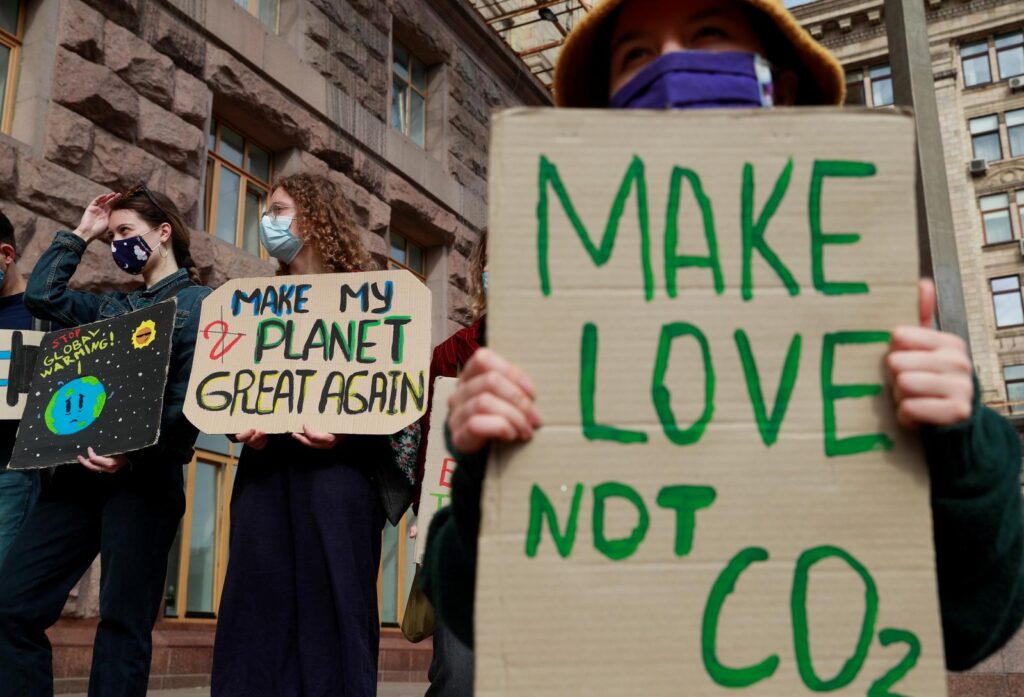Carbon Pricing Rises As Weapon Of Choice In Climate Fight
Nov 24, 2020 | Pratirodh Bureau
FILE PHOTO: Climate activists hold placards as they protest, calling for a "Global Day of Climate Action" in Kyiv, Ukraine (Representational Image)
Can you put a price on pollution? Some of the world’s biggest economies are doing just that as they wrestle with how to make good on grand pledges to tame planet-warming emissions.
Matters are coming to a head.
China, Japan and South Korea have all followed the European Union in pledging to cut emissions to “net zero” in recent weeks, where they release only as much as they remove from the air. U.S. President-elect Joe Biden made the same promise in his election campaign.
Next year they are set to lay out the first practical measures to meet these targets, as part of commitments under the Paris climate accord, and putting a price on carbon will be front and centre, experts told Reuters.
“Each country will have to come up with its own path to reaching net zero, but the expectation is carbon pricing is going to be a very important part,” said Wendy Hughes, Carbon Markets and Innovation Manager at the World Bank.
The principle is simple: a carbon price establishes how much companies need to pay for their emissions. The higher the price, the greater the incentive to pollute less and invest in low-carbon technology.
Governments can force these payments through a carbon tax – a levy companies must pay when they pollute – or through an emissions-trading system (ETS).
An ETS sets a maximum cap on the amount of emissions that a sector, or group of sectors, can produce. It creates “carbon permits” for those emissions, which companies can buy for each tonne of CO2 they emit.
Many countries, from Europe and South Korea, to China and Kazakhstan have already launched schemes, of various scope.
More than fifth of global emissions are covered by 46 national carbon-pricing schemes operating today or in the planning stage, as well as 32 regional systems within countries, according to the World Bank.
The biggest of those – the EU carbon market – is preparing for a major overhaul.
Since the European system was launched in 2005, emissions from participating power plants and factories have dropped by 35% – a sharper drop than seen in sectors not covered by the scheme.
“The ETS has proven its efficiency,” said Frans Timmermans, head of EU climate policy. “The ETS shows how carbon pricing is a strong driver for immediate change in energy consumption.”
